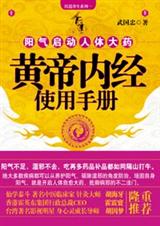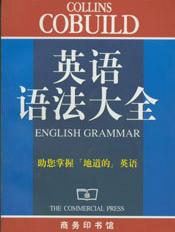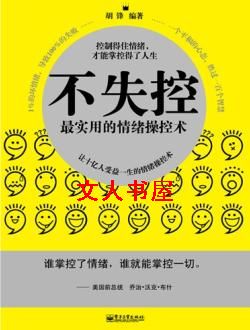牛津实用英语语法-第17章
按键盘上方向键 ← 或 → 可快速上下翻页,按键盘上的 Enter 键可回到本书目录页,按键盘上方向键 ↑ 可回到本页顶部!
————未阅读完?加入书签已便下次继续阅读!
他只有叫喊才能让别人听到他。
He became so suspicious that…相当于:
So suspicious did he bee that…
他变得这样疑心,以致……
注意:在一个句子中,第二个否定动词有时可以用nor来表达,并跟倒装语序:
He had no money and didn’t know anyone he could borrow from.
He had no money,nor did he know anyone he could borrow from.
他身无分文,也不认识任何可以借钱的人。(neither在这儿不太常用。)(关于副词和副词短语后跟动词的倒装语序和作主语的名词的情况,如Up went the rocket, By the door stoodan armed guard,参见第36节C,E,F。)
?
'Amber demo'
第五章
all,each,every,both,neither,
either,some,any,no和 none?
?
'Amber demo'
46 all,each,every,everyone,everybody,everything
(关于all和each的区别,参见第48节。)
A all和every的比较
从词义的角度来看,all指的是一组作为整体来考虑的人或物。
every指的是一组作为个体来考虑的人或物。但是,在实践中,every和它的复合词常常用来指一个整体。
B each(形容词和代词)和every(形容词)
each指的是一些作为个体来考虑的人或物。
every也含有这种意思,但是every不像each那样强调每一个个体。
Evers man had a weapon(士兵人人都有武器)意指说话人点了人数和武器,发现两者的数字是相符的。 Each man had aweapon(每个士兵都有一件武器)意指说话人依次走到每个人身边,经检查确定每个人都有一件武器。
each是代词和形容词:
Each(man)knows what to do.
每一个(人)都知道要做什么。
every只作形容词:
Every man knows…
人人都知道……
each可与两个或更多的人或物相关,通常是较小的数目,但every通常并不与很小的数目相关。
两者都用单数动词,所有格形容词形式是his/her/its。
(关于相互代词each other,参见第53节C和第70节B。)
C everyone/everybody和everything(代词)
everyone/everybody+单数动词通常要比all(the)people+复数动词更常用,如可以说Everyone is ready(人人都准备好了),而不说All the people are ready。everyone和everybody之间不存在任何区别。
everything同样要比all(the)things更常用。如可以说Every…thing has been wasted(一切都浪费了),而不说 All the thingshave been wasted。
all(the)people,all(the)things可与短语或从句连用:
All the people in the room clapped.
全屋的人都鼓掌。
I got all the things you asked for.
我弄到了你要的一切。
除此之外,all(the)people和all(the)things很少使用。
(关于在everyone/everybody之后使用代词和所有格形容词的情况,参见第51节C与第69节。)
?
'Amber demo'
47 both
?
both意为one and the other(一个和另一个,两者都)。
它后面跟动词的复数形式。
both可单独使用,后面也可跟名词:
Both(doors)were open.
两个(门)都开着。
或后面跟(of)+the/these/those或所有格形式:
both(of)the wheels两个车轮都……
both(of)your wheels你的两个车轮都……
或后面跟of+us/you/them:
Both of us knew him.
我们俩都认识他。
人称代词+both也是可以的:
We both knew him.
(译文同上。)
(参见第48节。)
both…and…可以用于强调两个形容词、名词、动词等的组合:
It was both cold and wet.
又寒冷又潮湿。
He is both an actor and a director.
他既是演员又是导演。
He both acts and directs.
他又当演员,又当导演。
?
'Amber demo'
48 all/both/each+of和其他可以替代的结构
?
A all(代词)后面可跟of+the/this/these/that/those/所有格形式和专有名词。
both(代词)+of的用法是同样的,但只限于用在复数形式之前。of在这儿常常被省略,特别是与all+名词/单数代词形式连用时。
all the town全镇上的人
all(of)Tom’s boys汤姆的所有男孩
all his life他毕生
both(of)the towns两个城市都……
all(of)these这些都……
both(of)his parents他的父母都……
B 与all/both+of+人称代词连用时,of不能省略:
all of it它的全部都……
both of them他/她/它们俩都……
但是还有另外一个结构,即人称代词+all/both:
all of it=it all
all of us=we all(主语),us all(宾语)
all of you=you all
all of them=they all(主语),them all(宾语)
同样:
both of us=we both(主语),us both(宾语)
both of you=you both(主语、宾语通用)
both of them=they both(主语),them both(宾语)
All of them were broken.相当于:
They were all broken.
它们全都破了。
All/Both of us went.相当于:
We all/both went.
我们(俩)全都去了。
We ate all/both the cakes.
我们把(两块)点心全都吃了。
C 人称代词+all/both的组合如是复合时态的主语时,助动词通常位于all/both之前:
We are all waiting.
我们都在等。
You must both help me.
你们俩都必须帮助我。
be也应位于all/both之前,除非它用于简短的回答中:We are all/both ready.
我们(俩)都准备好了。
但是:—Who is ready?
—We all are./We both are.
—谁准备好了?
—我们(俩)都准备好了。
其他助动词单独使用时或普通动词用一般现在时时,它们都应位于all/both之后:
You all have maps.
你们都有地图。
They both knew where to go.
他们俩都知道去哪儿。
D each与both一样,后面可跟of+these/those等(of后面的代词仅限于复数形式)。在这里of不可省略:
each of the boys男孩中的每一个
each of these这些中的每一个
然而,each of us/you/them可以由代词+each来替代:each of you=you each(主语、宾语通用)
each of us=we each(主语),us each(宾语)
each of them=they each(主语),them each(宾语)
We each sent in a report.
我们每人递上了一份报告。
They gave us each a form to fill in.
他们给了我们每人一张要填写的表格。
注意:each of us/you/them是单数:
Each of us has a map.
我们每人都有一张地图。
但we/you/they each是复数:
We each have a map.
我们每人都有一张地图。
we/you/they each在句中作主语时,句子的语序同上面C有关all及both的语序相同:
They have each been questioned.
他们每个人都被查问过。
?
'Amber demo'
49 neither,either
?
Al neither意为“既不是甲,也不是乙”,“两者都不……”,后面跟单数动词的肯定式。它可以单独使用,后面也可跟名词或of
+the/these/those/所有格代词或人称代词:
(a)I tried both keys but neither(of them)worked.
两把钥匙我都试了,但(两把)都不行。
(b)Neither of them knew the way/Neither boy knew…
他们俩/两个男孩都不认得路。
(c) I’ve read neither of these(books).
这两本(书)我都没看过。
2 either意为“两者之一”,“两者中任何一个”。它后面跟动词单数形式。同neither一样,它可以单独使用,或跟名词/代词及of+the/these/those等连用。
3 either+否定动词可代替neither+肯定动词,但neither是主语时除外。所以either不能用于上面Al例句(a)或(b)中,只能用于例句(c)中:
I haven’t read either of these(books).
这两本(书)我都没看过。
虽然either不能作否定句的主语,但它可作肯定句或疑问句的主语或宾语:
Either(of these)would do.
这两个中任一个都可以。
Would you like either of these?
你喜欢二者中的任一个吗?
4 代词和所有格形容词与代表人的neither/either连用时,从语法上说应当用he/him,she/her及his/her,但是在英语的口语中用复数形式较为普遍:
Neither of them knows the way,do they?
他们俩都不知道路,是吗?
Neither of them had brought their passports.
他们俩都没带护照。
B neither…nor,either… or
neither… nor+肯定动词是把两个否定说法结合在一起的强
调方式:
(a)Neither threats nor arguments had any affect on him.
无论是恐吓还是讲道理对他都不起作用。
(b)They said the room was large and bright but it was neither large norbright.
他们说这间房子又大又明亮,可它既不大也不明亮。
(c)He neither wrote nor phoned.
他既没写信又没打电话。
either…or+否定动词可代替neither…nor+肯定动词结构,
但neither…nor作动词主语时除外,如上述例句(a)。所以可
以说:
(b)…but it wasn’t either large or bright.
(c)He didn’t either write or phone.
either…or不能作否定句的主语,但可作肯定句和疑问句的主
语或宾语。这种用法是表示强调二者之中任何一






